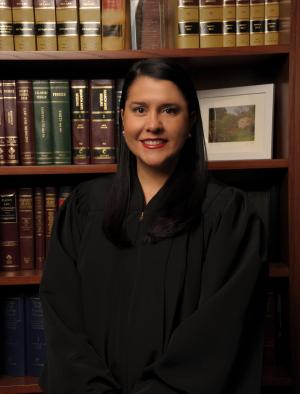Pedal to the Metal
In the wake of COVID, Nevada’s legal community must speed up efforts for fair justice for all

By Cristina D. Silva
The global pandemic has affected our sense of time like nothing else we have ever experienced. Traditional notions of “work weeks” or “school years” faded against a backdrop of days blurred together. My conversations with family, friends, and colleagues confirmed that I was not alone: The 2020s have been difficult for all.
As we try to rebuild our lives post-COVID-19, Nevada’s legal community must also devise a collective goal: We must accelerate our efforts to ensure expeditious and fair justice for everybody.
Even at the height of COVID, legal professionals kept hard at work in their unending pursuit of justice. But COVID undoubtedly forced a slow-down, which contributed to court backlogs (and further disruption of everyone’s perception of time). The backlogs can no longer just be a mere subject of conversation—a topic of disappointment.
Instead, each of us involved in the justice system must reenergize and accelerate our efforts to clear those backlogs. As a judge in the U.S. District Court for the District of Nevada, I take the initiative to accelerate our work seriously.
Warren E. Burger, then chief justice of the U.S. Supreme Court, in a speech before the American Bar Association in 1970, described the need for an efficient legal system.
“A sense of confidence in the courts is essential to maintain the fabric of ordered liberty for a free people,” he said. “Three things could destroy that confidence and do incalculable damage to society:
- That people come to believe that inefficiency and delay will drain even a just judgment of its value;
- That people who have long been exploited in the smaller transactions of daily life come to believe that courts cannot vindicate their legal rights from fraud and over-reaching;
- That people come to believe the law—in the larger sense—cannot fulfill its primary function to protect them and their families in their homes, at their work, and on the public streets.”
Burger’s words ring even more true today. The courts must work to establish a sense of confidence in our system of justice and to ensure that our communities are not damaged by inefficiency and unnecessary delays.
I have no words to express my immense gratitude for the faith that President Joe Biden showed in me when he nominated me to the federal bench. Even more than six months after my confirmation, the process remains surreal. While I cannot shake that remarkable feeling, the reality is that I feel fortunate to serve our community in my new role.
This is particularly poignant given that the District of Nevada experienced a judicial emergency as my seat and another seat were left unfilled for more than four years. The pandemic only exacerbated delays inherent to an understaffed courthouse.
My hope is that our legal community will embrace this unprecedented time in the profession. We have a great deal of work to perform, and I hope that everyone, from judges to law students, is equally enthusiastic about tackling the challenges we face. With new technologies and processes in place, the justice system has taken a huge step into the digital era and accelerated positive change. Moreover, the benefits of digitalization have accrued in both time and cost savings for firms and clients alike.
The energy I feel when I go to work these days feels nostalgic and hopeful, like excitement at the start of a new school year. For example, I am overjoyed when I have members of the public and attorneys appear before me back in the courtroom. After such a lengthy absence, in-person hearings feel like seeing friends after a long summer break.
The time distortion caused by COVID and the subsequent feeling of needing to “catch up” may make reenergization and acceleration seem daunting. That is why we must remember that we are not alone: We are a community, and the William S. Boyd School of Law at UNLV plays a vital role in the strength of our community. The law school is where connections within legal networks are forged and fostered. The legal community looks to Boyd Law, its alumni, associations, and student organizations for support. It is an exciting time to be part of #BoydNation, and its strength continues to grow.
To current students: Never forget the importance of those you meet. The roots you establish at the law school will help you grow and participate in our community’s acceleration. I am confident that Nevada’s Battle Born spirit will not only help students in that effort, but also push the state forward as a whole. I look forward to seeing the results of our efforts toward advancing the practice of law and accelerating the pursuit of justice.
Silva became a judge in the U.S. District Court for the District of Nevada in April after being a judge for the Eighth Judicial District Court in Las Vegas for three years. She received her law degree from the American University Washington College of Law in Washington, D.C., in 2007.